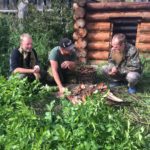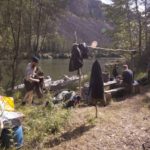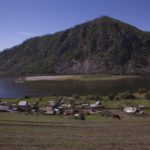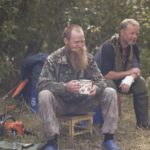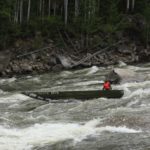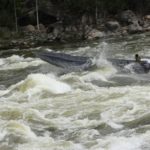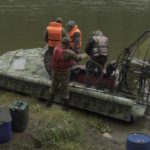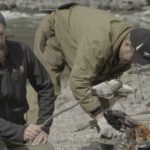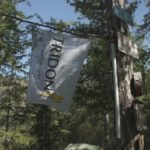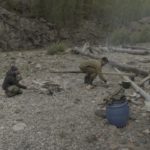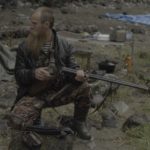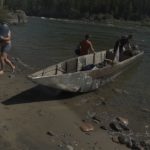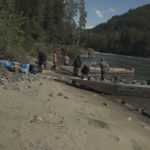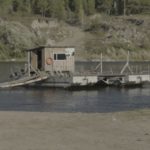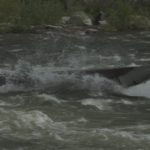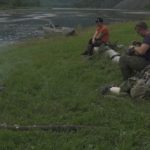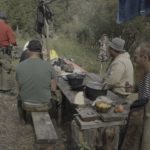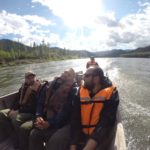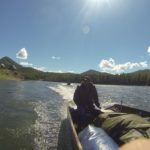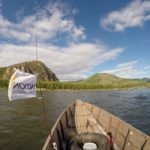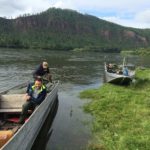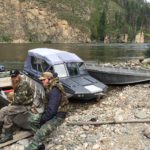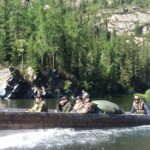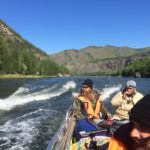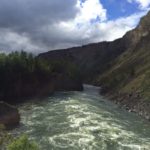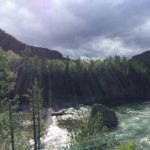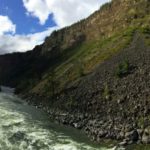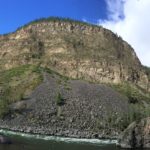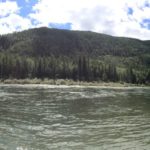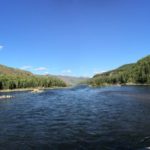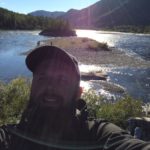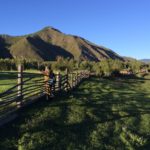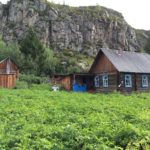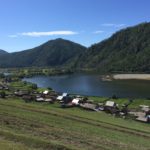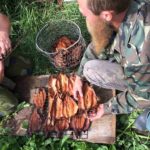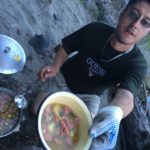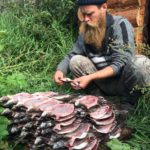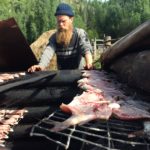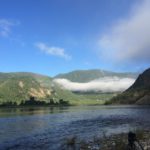- Country:
- Russia
- Language
- Tuvanese, Russian
- Population
- 307 930
- Area
- 170 500 km²
Rafting on the Yenisei River
In Kyzyl, the heart of the Tuva Republic, Great Yenisei is connected with Little Yenisei.
Here we begin our adventure with boats, even though we are still far from getting on board.
Wot and roar of the V8 race engine with a capacity of 7 litres. It is Ural. The car is almost like a single-family house. This is how we will get to the Little Yenisei, where boats are waiting for us led by the Old Believers, knowing every centimetre of the river.
Czytaj więcejKyzyl is a city, but it is surrounded only by roadless paths. The distance travelled in Europe in one hour is 11 hours of drive along the rough terrain in Siberia. But be calm, the conditions are comfortable.We offer Ural in an “officer’s version” offering a number of luxuries. Such as: bunk beds, washbasins and carpets on the floor. If not the fact that we have to pass small rivers, brooks and shrubs, which in the Urals are perfect, the journey could be considered comfortable.
This is how we reach the river, where we assemble the camp. Who has enough of Ural, he can sleep comfortably in a comfortable bed. And who prefers to sleep closer to the uncontaminated nature sleeps in a tent but he has to mount it by himslef. But he can also ask for help from our cooker Grisha, experienced in sleeping in Siberia’s Spartan conditions, who is just firing a barbecue for fresh fish caught at the camp. It is hard not to mention the fact that Grisha specializes in fish soup, which looks like Russian sushi – at least when it comes to eating raw fish.
In the morning, we are awakened by the Old Believers, who offer us their own smoked fish as a sign of friendship. These are people of taiga, who live in the wilderness and who are completely self-sufficient. They were born close to the river and know every corner of it like a house.
We enter the boat and divided into two crews we go through a huge riverbed carved by water for millions of years. Around us, several hundred meters higher, there is an endless taiga, where there is no living soul.
You have to be very careful.
Although the river sometimes seems to be calm, a moment of inattention may cause a real. There is no one to help here – we can only count on ourselves and our own skills. The only contact with civilization is our satellite telephone. That is why people who live in taiga are going with us – hunters, former military men, people who can survive in difficult conditions.
In the environment of unspoilt nature, we stop thinking about dangers and enjoy the view of nature, which is dazzling. The impression is hypnotic. The uniform noise of the motor acts sleepy. You do not feel 35°C. The boat’s own wind makes it necessary to wear fleece, jackets, ski maska and caps.
The river is becoming increasingly agitated. We come across the first rock steps. Bargeman instructs us to leave the boat and he bravely passes through the thresholds. We walk along the forest, dropping successive layers of clothing – this is the heat that prevails here.
When we jump back onto the boat, it is again pleasantly cold and the river breeze refreshes us.
When it gets dark, we reach the accommodation base. A kettle of delicious food waits for us there. As the main course, of course, fish or beans. Russians are not among the best chefs, but this is compensated by the freshness and quality of products. For them, simple means good.
After a whole day in the base there is a Russian bath waiting for us. You have to enjoy it, because for the next 2 weeks we will sleep in tents or in huts spread along the river, which are used by hunters in winter. Harder companions can sleep outside, because it is probably the safest place in the world.
Huts are specific because there is a woodburning stove here and a wooden cot on which you can spread your sleeping bag. Few people have to sleep on the same bunk, so it is warm and soft. Worse as rainfall falls. If you are lucky, the hut has a tight roof – if not, you have to quickly install a tent in the rain. Survival guaranteed.
Again, difficult conditions are compensated by nature and fertile fisheries. On the river there is a number of spatula and islets, which are pouring on all kinds of fish. The king of the river is taimen, for which people from all over the world come to these areas.
However, Russians are not looking for a trophy, but they are catching everything in order to cook lunch. When we are tired of fly fishing, they pull one fish after another. We already know that we won’t be hungry, and the bark of birch trees will help even in the rain to light up a huge bonfire and bake fresh fish on a stick.
When we become friends with Old Believers after only a few days, we are very lucky as foreigners. They invite us to their village. Living in the middle of taiga with so intimate people is amazing. It is here that we get to know the appeals of a simple life. The garden looks like a vegetable stall, and the Old Believer’s wife bakes the bread herself. One loaf for us and the other for 5 of their children who hide from us, watching us out of hiding.They had never seen tourists before.
The Old Believer shows us a self-constructed smokehouse made of Siberian pine. On several floors, several dozen of fresh fish are smoked.Oh, they have their recipes for the good preparation of fish. But with a special wine (Old Believers do not drink high percentage alcohol) they may reveal to their new friends the secrets of their recipes, passed from father to son. You can not buy such delicacies in the shop.
The further journey ends 30 km from the Mongolia border. As foreigners, we can not go further. Only Tuvians and Russians living here can cross the border here. We sail back. The return route passes faster, but we are still dazzled by the incredible rocks and picturesque villages at the river where the harvest takes place.
The Ural is waiting for us. We head back to the centre of Asia with the engine whir, and we are still absorbing Mongolian culture before returning to civilisation.
Did you know:
- On 25 June 1941 Tuva formally declared the war to the Nazi Germans, but the act of capitulation has not been signed to this day. Formally, Tuva is still in war.
- It is one of Russia’s autonomous republics with a predominance of indigenous peoples over the Russian population.
- The Republic is inhabited by 82% of the Tuva population.
- Tuvian language is widely used and the population has a poor knowledge of Russian.
- In 1878 Russians discovered gold in Tuva.
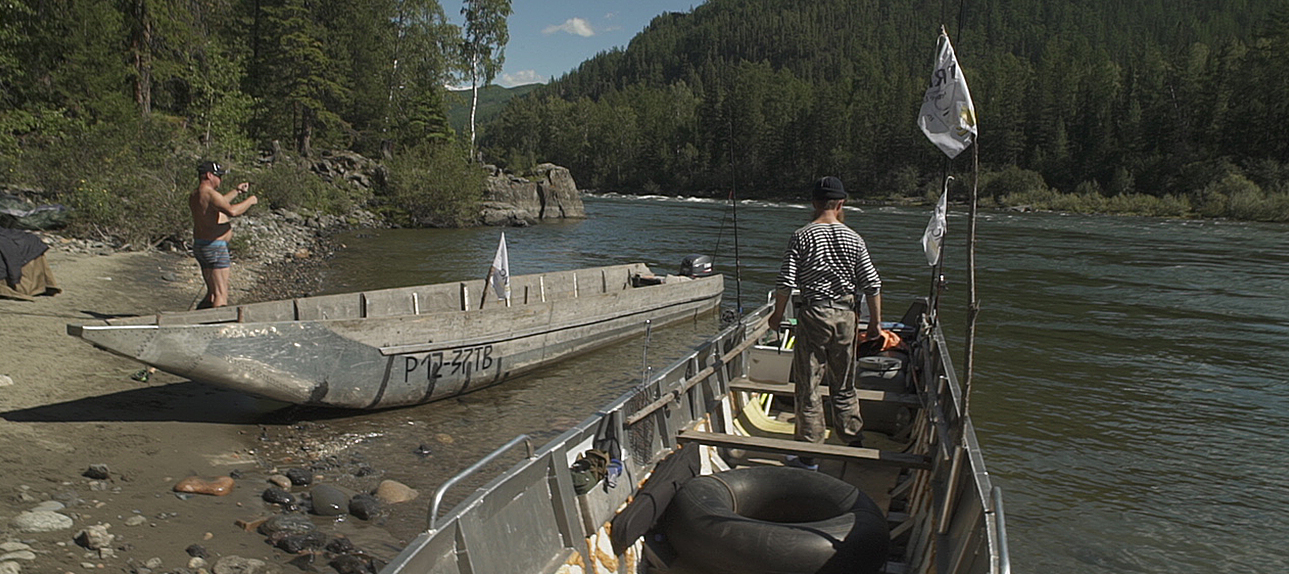
- DCIM102GOPRO
- DCIM102GOPRO
- DCIM102GOPRO


